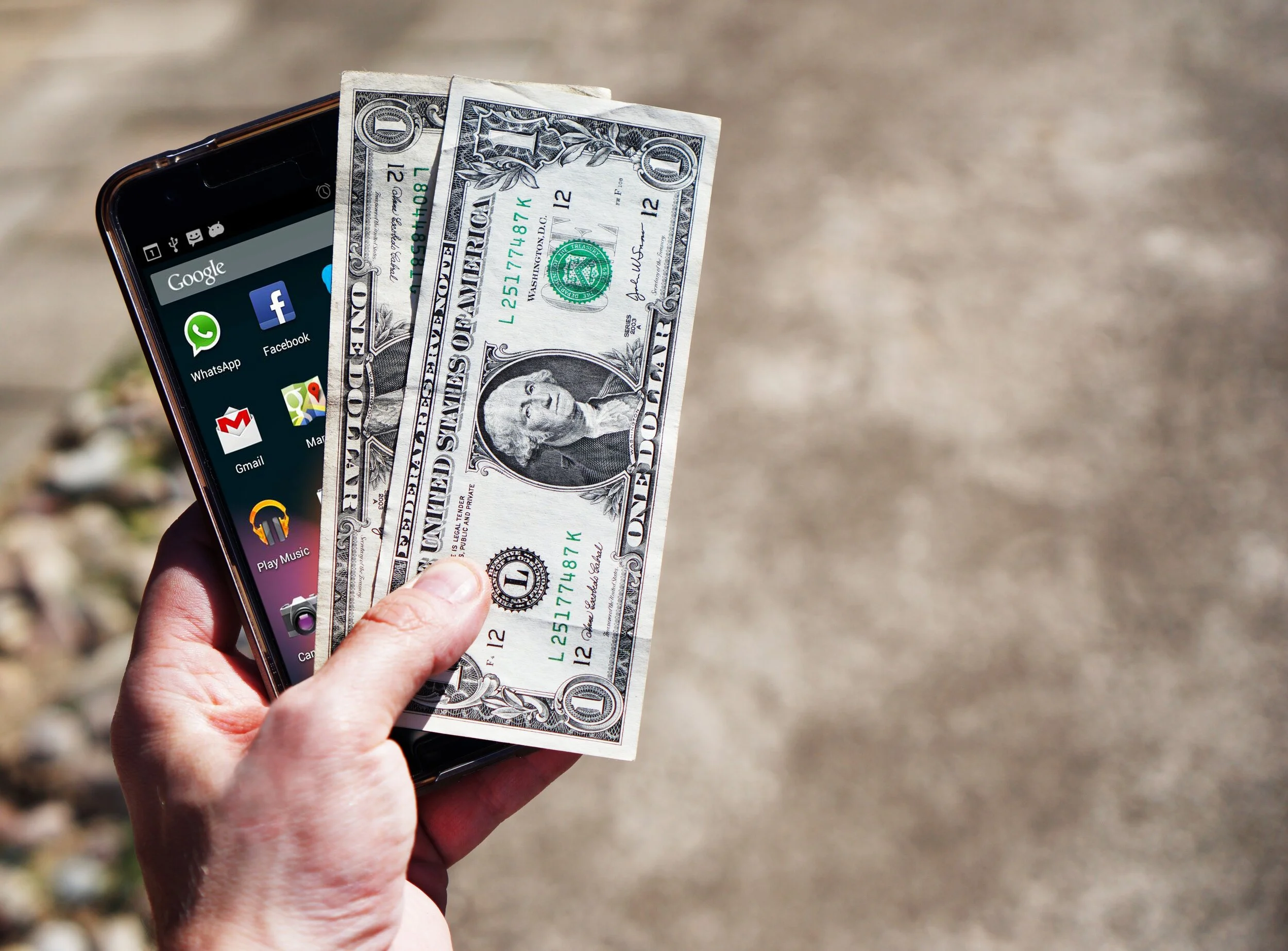Guilt, shame, and regret are powerful feelings. They can color how we see ourselves, perhaps permanently, and paralyze us into inaction. Here’s an example: A college freshman is tempted by a table in the quad: Sign up for a credit card, get a free t-shirt. What could go wrong? Except using that card without a plan and paying off just the minimum amount each month adds up to a huge balance. Once graduation day came, the “free” t-shirt is long gone, but they’ll be carrying that load of debt — and the shame of making that mistake — for a long time.
Why is talking about money so hard?
Let’s be real: Our culture doesn’t encourage talking about money. Whether that’s ethnic culture, family culture, or the culture of consumerism in America, there are a lot of people who believe finances are personal (read: private), and should be kept that way. While there may be some good reasons for this, I think it’s also a bit of a cop-out. It gives us permission to say this conventional wisdom is beyond our control, when in fact we are all part of creating, shaping, and maintaining cultural norms.
6 Limiting Money Beliefs
Whenever I tell people I’m a financial educator, the most common response I receive is: “I’m so glad someone is doing that work; I’m no good with money.” The first few times I received that response I was so startled by it that I just paused and moved on with the conversation. Now I’ve started to ask people: “Why do you think that?” Often, they are just as startled by this response. Usually it’s something they have never questioned. Yet, this belief is usually holding them back from making the best of their life with money because they have already convinced themselves they can’t do it.
Motivated by Money
Financial Self-Care
Over the last month or so that we’ve been staying at home, I’ve enjoyed watching the general thread on my Instagram change from one focused on hustle and productivity to gratitude and self-care. This time of collective trauma has taught us how to have grace with ourselves and others in ways we haven’t before.
Don't Be Fooled: 5 Common Money Myths
For the longest time, I thought cheaper was always better. As a graduate student living on an extremely tight budget, this money myth was really handy. I cut coupons, checked the unit price on items in the grocery store, and ordered the least expensive meal when I went out with friends. Frugality was my motto, and I refused to deviate.
How to Stop Wasting Money While Stressed
We’ve all done it: You’re exhausted from a stressful week at work, so you order takeout and ignore the fresh groceries in your stocked fridge. You’re anxious about a big life decision, so you buy some sugary treats hoping they’ll make you feel better. You’re too busy to get what you need for an upcoming trip, so you do a last minute, online binge shopping order and put it on your credit card without considering how you’ll pay it back.
Finding the Right Balance
Have you ever noticed that most personal finance books and blogs are focused on tips to help people save more and spend less? It’s as if the assumption is that people are naturally spenders who need help fighting their natural inclinations — and there’s a bit of subtle shaming that comes with that tendency.
2020 Intentions
Over the last two years, I have had the privilege of walking beside Michelle Boss (aka The Money Boss) as an accountability partner. Over that time she’s grown from being a fellow financial coach into a mentor and friend. We’ve never met in person, but we check in every two weeks via phone. We share our highs and lows, celebrating and encouraging one another along the way.
I Can't Afford That
Aah … the four little words that have ruled most of my adult financial life.
In graduate school — when I couldn’t afford anything beyond basic necessities — I wore those four words as a badge of honor. Unlike so many of my peers who didn’t live within their means, they helped me be clear on what was inside my budget and what wasn’t.
Financial Freedom
I remember the first time I tasted financial freedom. I was a year or so into my first full-time job and I had finally gotten the hang of budgeting and covering all of my needs. I had a plan to repay my student loans and build my emergency fund, so I could finally save toward something I wanted with what was left over. That was the moment when money became not just frugal but fun to me. Because all of my bases were covered, I had the freedom to choose and pursue my next goal.
How to Handle Income Inequality in a Relationship
When my husband and I first met, I was a graduate student working about 15 hours/week and living as frugally as I could. He was an art student who also worked full-time at the front desk of a hotel. I kid you not, when we met I thought my husband was rich. He lived in a 1-bedroom apartment — by himself, with laundry in unit! He even had cable TV. Seriously, what more could you want? I was living in an apartment near my school with a roommate, uneven floors, and laundry a parking lot away. To me, he was the paragon of adult living.
Learning from Your Money Story
Have you ever heard someone say “money is just a piece of paper”? I get where they are coming from – it really is just a piece of paper. But what it represents and the power that we give to money can make it so much more (or so much less). Much of how we view and use money is forged in our early years by watching the people we love handle it. We take on the positive behaviors they taught us, but we may also bring with it their fears, anxieties, and blind spots about money as well.
What's Your Money Personality?
When money comes your way — whether that’s a paycheck, side hustle income, or an unexpected tax refund — what’s your first instinct? How you answer may say a lot about your money personality. Are you a saver, spender, giver, or acquirer? You may be just one, or a combination of two. No money personality is better than the other; each has strengths and growth areas.
It may help to think back to how you handled money growing up. As a kid, I can still remember the joy I experienced as I gave part or all of my babysitting money away. I know — I was a pretty odd kid! But it always came back to already having all of my needs met and wanting to use my money to help others.
Ask Grace Pomroy: Can You Ever Save Enough?
A few weeks ago, the lovely career coach, Lisa Lewis, interviewed me for her blog series about money. During the interview we got to talking about whether or not you can ever have enough in savings. The desperate pursuit of the elusive “enough” too often leads people to live in fear: fear of spending too much, fear of giving away too much, fear of not having enough to support themselves and their family.
Facing Regret
I was cleaning out my pantry this weekend. Literally every time you opened the door, something fell out — seriously, so embarrassing! As I began to reorganize the items, I realized pretty quickly that 1/3 to 1/2 of what was in our pantry was actually expired. As I piled up the items to be recycled and thrown away, I was filled with regret: for the food that was never made, the money we wasted, the fruitless labor that went into making the items I was so carelessly discarding, and the many people who go hungry every day across the world.




















